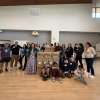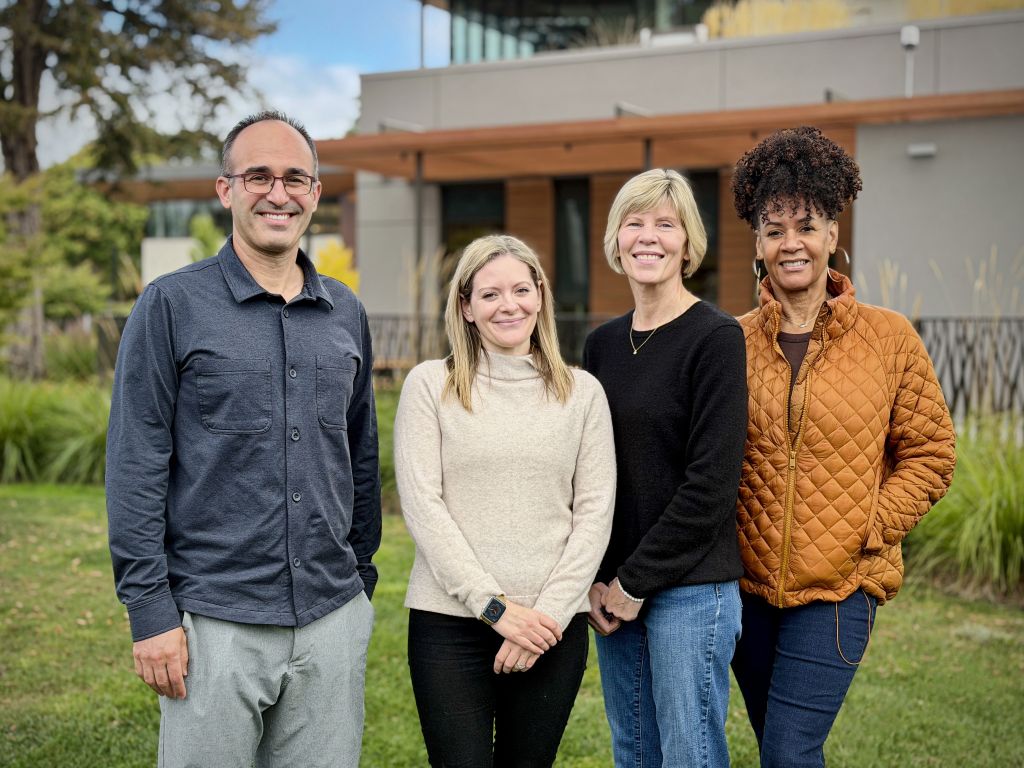650 Stories: Interview with Jeffery Chen
Jeffery Chen is a 17-year-old senior at Burlingame High whose educational video on neutrino astronomy just won the fifth annual Breakthrough Junior Challenge, a global science competition with over 11,000 entries. His winning video explains how the tiny neutrino provides key insights into astronomy, and garnered him a $250,000 scholarship. In addition to his prize money, his science teacher and mentor received $50,000, and his high school received $100,000 towards a new science lab. As Chen heads into college, he hopes to devote his energy to working on the climate crisis.
So the first thing I notice is that your name is spelled differently from the normal spelling of Jeffrey. What’s the origin of that?
Yeah, it’s caused me a lot of problems. I think my parents thought it would make me more special, and in a way it did, but a lot of people still spell it wrong. I’m the first person in my family to have an English name, because my parents immigrated here from China.
Where were you born and raised?
I was born in Salt Lake City, Utah, and then I lived there for a few months and moved to Libertyville, Illinois where I spent my first 11 years, and moved to Burlingame, California the summer before 7th grade.
What were your first thoughts when you moved to Burlingame?
I moved here in the summertime and it is definitely a lot drier here and there weren’t any mosquitos which I thought was really nice. The kids spoke a little differently, had different accents, and used words you wouldn’t hear in Illinois like hella. But I feel like kids are pretty similar almost everywhere you go.
What were your interests growing up and how have they evolved?
When I was in middle school I was always writing. I always wanted to become an author. I tried to write a novel; it didn’t work out, but the skills I learned through writing translated into other forms of storytelling, like the stories I tell in my videos even if they are educational. I remember when I was writing I would always imagine every scene would be like a scene in a movie. I think that’s why films felt like such a natural evolution of my ability as a writer.
How did you get into making films?
I made my first film in 8th grade; it was on climate change and the environment. The next video I made was my first pretty difficult one, where I, as an 8th grade boy tried to tackle feminism and gender equality. I don’t know about the results, but it was an eye-opening experience where I took all these skills I learned throughout middle school, from writing to stand-up comedy, to make a coherent script.
What made you fall in love with film?
We’re living in this time where we always have so much information going around that it’s kind of hard to just sit down and look at one idea at a time. What film does really well is that it’s an engaging medium that naturally draws people to it because you have audio, music, speaking, and visuals. If you are able to edit them and make them smooth, people will be naturally drawn to that.
What was an example of a time you failed when trying to make a film?
I wouldn’t say it was a colossal failure, but the first time I submitted to this challenge, I made it into the top 75, out of 3-4,000 submissions, but I didn’t make it any further and I think that was a pretty eye-opening experience, because up until that point I was used to doing pretty well in these competitions. I was expecting myself to be a finalist or semifinalist. It pushed me harder and gave me humility. Before that I was working on another video project that didn’t get off the ground. Those two experiences taught me that sometimes you can work really hard but sometimes things don’t turn out the way you wanted, and that’s okay, all you can do is just move on and learn.
What was it like winning this competition?
I’d always dreamed before that if I won I would be pretty ecstatic, but I was mainly in a state of shock and it took a couple of days to really process. To be honest during that time my brain simply couldn’t comprehend it. I was also in the musical Mamma Mia at the time and I was more stressed about that than winning.
Growing up, what did your parents hope for you to do with respect to school and career? What do they think about your various pursuits?
Definitely film and writing isn’t what they expected me to do. Growing up I was different from a lot of our family friends who are also Chinese immigrants. I was different from their kids. It was definitely a point of contention for a bit. I would focus on making these films instead of focusing on my schoolwork, but eventually they realized I had a deep passion for film and I’m someone who once I find my passion for something I work extremely hard at it and usually turn out decent results. So they ended up supporting me and it’s been really great. For instance, during the making of this year’s film, my dad, who has no filmmaking skills whatsoever, helped me hold the camera, so that was very nice of him.
Going back to this particular winning film, why did you choose to focus on neutrino astronomy?
As a kid, I wanted to be an astronaut and all my scientific heroes were astronauts and the question of what’s beyond our earth has always fascinated me. I wanted to create a video that captures that same sense of awe at how vast the universe is. I eventually settled on neutrino astronomy, because I thought it was the most interesting kind of astronomy.
Why is neutrino astronomy so interesting?
It all revolves around this tiny particle called the neutrino. What I thought was so amazing about it is that it’s this tiny particle that can tell us so much about the universe we live in. I like the contrast between how this really small thing can tell us about these really big events and other objects.
What kind of things can the neutrino tell us about?
The example I discuss in my video, is the 2017 detection of the neutrino at the IceCube Neutrino Observatory, which happened to be special because that specific neutrino came from this super massive black hole. The moment we detect them they are basically the same as when they left the object in the first place. They are pretty much unchanged and it’s so rare we catch them.
How are the neutrinos detected?
It’s just pretty much dumb luck. The neutrino, since it’s so tiny, much tinier than an atom, once in a while it will bump into the nucleus of an atom and that collision releases other tiny particles that give off a glow and the sensors in the observatory will detect that glow.
How do they tell where the neutrino came from?
They use what I’m assuming is really intense mathematics to pinpoint the location direction in the sky where the neutrino came from. Then they trained regular telescopes at that location and discovered a super active black hole.
It seems that the neutrino’s small size and weakness is its superpower.
Their weakness is what makes them so useful. They are nicknamed by physicists as the “ghost particle” because they travel through everything. In the really tiny chance that one bumps into something in the observatory, we can learn more about the object where it came from.
As you’re finishing up your senior year, what are your plans for the near future?
I hope to study some form of environmental science, because what’s happening is there’s a shift among not only my generation but other generations about sustainability and I want to be part of fixing the climate and our earth. If in my lifetime we do manage to do that I will turn back to astronomy and physics but I feel this obligation.
How does the climate crisis affect you in terms of how you think about your life and your future. What are your feelings about it?
My friends and I talk about these things and one might say, ‘I don’t want to start having a family or kids if the world we are going to be living in is going to be worse than the one we’re living in now.’ There’s an element of fear and a lot of distrust around whether the government will do anything to fix climate change but I’ve always been optimistic about these types of things, because I feel like there’s some part of human nature that when pushed to our limits we do our absolute best, and I’m hoping that will be enough to fix climate change. I’m sure that we will eventually stabilize the climate but I hope it’s in time to prevent disaster and mitigate damages.
There are so many ways you can get involved in environmental science; what do you think the value is in creating educational videos?
Film is just another tool that people can use to communicate. I happen to think it’s a more powerful tool than reading a scientific article or listening to a scientist lecture. What film does is it allows you to cater to a specific audience. Every time I make a film I ask first who is the audience and that decision impacts what music I choose [and] the language I use throughout the video. People are more naturally inclined to watch a video than other things, because they don’t have to think as hard and it’s easier for them to digest the information, especially for the new generation where learning through videos is the norm.
How has your high school helped shape you?
I love Burlingame High School a lot. I feel like if there was a typical high school movie it would take place at a school like Burlingame High School. One thing that’s different is that we are known a lot for sports, but we also have a thriving scientific community here. I wouldn’t be where I am today without the school. The school really fosters this sense of academic achievement and trying to be more creative and scientific. Winning a competition like this has to come from some form of luck and part of that luck is I was fortunate enough to live these past years in this environment that’s been really nurturing academically and personally.
I also want to ask about your teacher, who got some money and recognition for this. Who did you nominate and why?
My teacher is Heather Johnson, and I met her when I was in 8th grade on orientation night. I walked into the classroom as a tiny 8th grader and asked her if there was an environmental club. She said there was and I was so excited, but when I joined freshman year the club didn’t exist because all the members had graduated. It was a bummer, but I showed her my first film which was about plastic bottle waste. She enjoyed it a lot and gave me some tips to add to my video. In sophmore year I created my own environmental club with her as my adviser, and we became a lot closer. Originally we just talked about environmental science, but I ended up feeling more comfortable talking to her about personal things like school or family or what’s been bothering me. We have a pretty close bond as teacher and student and so when I was sitting there deciding who to nominate as my teacher, there wasn’t really a question. I was always going to nominate her. High school definitely wouldn’t be as great as it is without my teacher.
Are you stressed out about going to college? You don’t seem like a stressed out person.
I do get stressed out. For instance, when I won this competition, my friend was called onto the stage to surprise me. He goes up to the microphone, and says, “Jeffery, I’ve always known you as a delightful ball of stress and now you’re a delightful ball of stress with a trophy.” I’ve kind of accepted the fact that I’ll always be stressed out about something, and I joke that if I’m stressed it’s working.
This article is copyrighted by Raziel Ungar and may not be reproduced or copied without express written permission.










